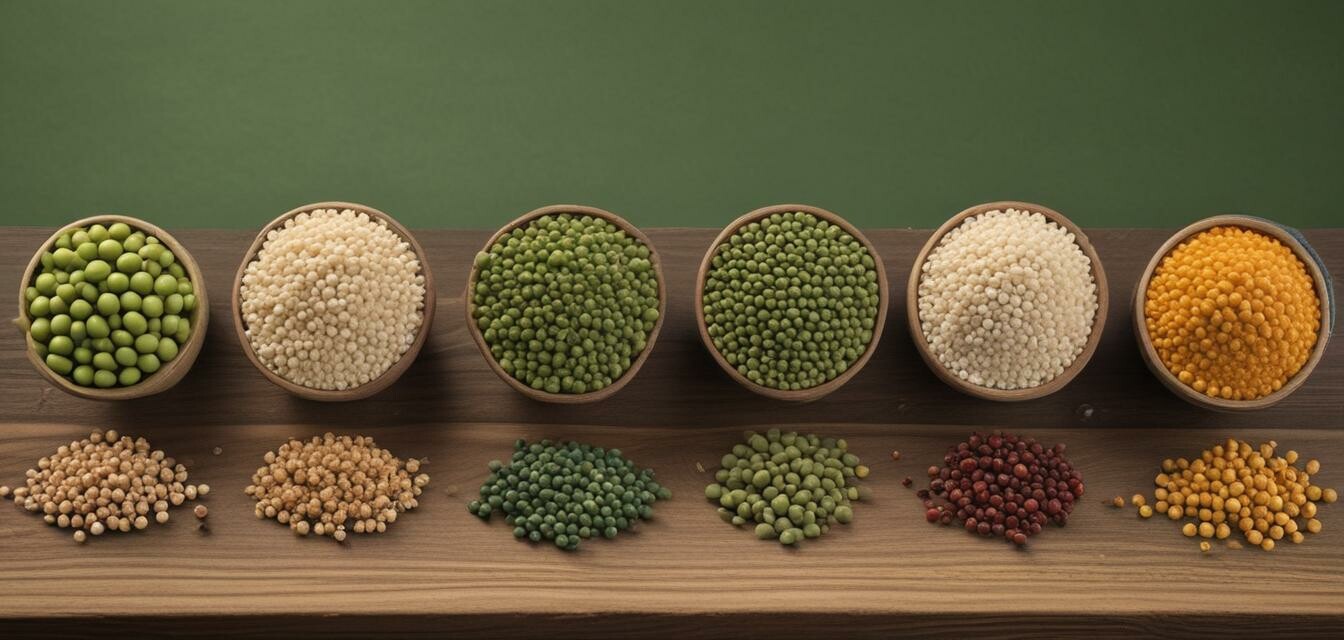
The Science Behind Plant-Based Protein in Sports
Key Takeaways
- Plant-based proteins come from a variety of sources, offering essential nutrients.
- Research shows that plant-based proteins can support muscle recovery and growth.
- A balanced diet including plant-based protein can enhance athletic performance.
- Sustainability is a significant factor in the shift towards plant-based nutrition.
- Incorporating a range of protein sources can maximize the benefits for athletes.
As more athletes turn to plant-based nutrition, understanding the science behind plant-based protein is essential for optimizing performance and recovery. This article delves into the benefits of incorporating plant-based protein into sports nutrition, examining key studies and findings in the field.
Understanding plant-based protein sources
Plant-based protein is derived from various plant sources, including legumes, grains, seeds, and nuts. Each source holds unique properties that contribute to overall nutrition. Below is a table highlighting common plant-based protein sources and their protein content:
| Protein Source | Protein Content (per 100g) |
|---|---|
| Chickpeas | 9g |
| Lentils | 9g |
| Quinoa | 4g |
| Peas | 5g |
| Hemp Seeds | 32g |
| Peanut Butter | 25g |
Key studies on plant-based protein and athletic performance
Numerous studies emphasize the positive impact of plant-based proteins on athletic performance. Here, we summarize some notable findings:
- Lean mass development: Research indicates that athletes who consume a plant-based diet experience similar levels of lean mass development compared to those who consume animal proteins.
- Muscle recovery: A study found that athletes consuming plant-based proteins reported improved recovery times and less muscle soreness.
- Endurance performance: Some studies suggest that plant-based diets can enhance endurance thanks to high carbohydrate content and low saturated fat.
Benefits of plant-based protein
Integrating plant-based proteins into an athlete's diet comes with numerous benefits, including:
- Affordability: Many plant sources are more economical than their animal counterparts.
- Diverse nutrients: Plant proteins often come with additional vitamins, minerals, and fiber.
- Lower environmental impact: Plant-based diets are typically more sustainable and contribute less to environmental degradation.
The importance of a balanced diet
While plant-based protein can be beneficial, it's essential for athletes to focus on a balanced diet that includes a variety of nutrients. This is crucial for maintaining energy levels and supporting overall health. Incorporating sources like vegan protein powders, legumes, and seeds can help ensure adequate protein intake.
Sustainability and plant-based nutrition
The rise in plant-based diets among athletes has a significant tie to sustainability. Many athletes are now opting for plant-based nutrition not just for health benefits but also to contribute positively to the planet. This shift is fostering innovation and new product developments aimed at supporting this dietary trend.
Conclusion
Understanding the science behind plant-based protein can empower athletes to make informed dietary choices. As research continues to demonstrate the benefits, it is clear that plant-based proteins are not just a trend but a viable option for supporting athletic performance and recovery.
Pros
- Diverse nutrient profile from various sources.
- Lower cost and sustainability benefits.
- Can enhance athletic performance.
Cons
- May require careful planning to meet protein intake needs.
- Not all plant proteins are complete; variety is key.
Tips for athletes transitioning to plant-based protein
- Start by incorporating plant-based meals a few days a week.
- Experiment with various protein sources to find what works best for you.
- Monitor your protein intake to ensure you're meeting your requirements.
For more insights into plant-based nutrition, check our Buying Guides section for tips on selecting the right products, or explore our News and Trends for the latest updates on plant-based sports nutrition.

